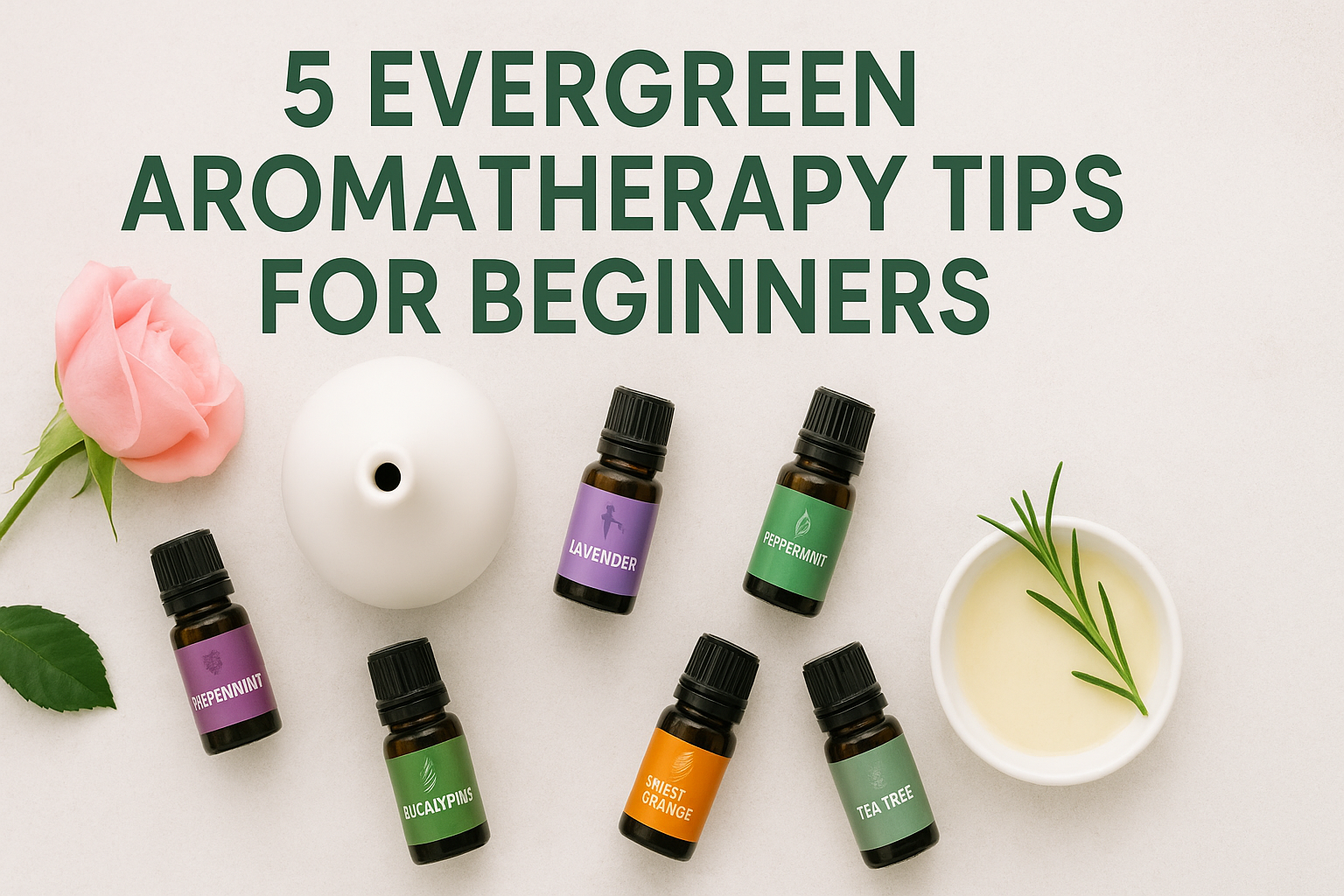The Timeless Magic of Aromatherapy for Beginners
Aromatherapy is one of the most evergreen wellness practices—used for centuries to calm the mind, support emotional balance, and refresh the body. For beginners, it’s an accessible and enjoyable way to work with essential oils, natural plant extracts known for their soothing therapeutic aromas. Whether you want to unwind after a long day, improve your mood, or simply bring more tranquility into your space, aromatherapy can become a deeply nourishing part of your wellness routine.
Here are 5 beginner-friendly aromatherapy tips to help you start safely and with confidence.
Choose High-Quality Essential Oils
Not all essential oils are created equal. For effective and safe evergreen aroma therapy, look for:
- 100% pure essential oils
- No synthetic fragrance or added fillers
- Dark glass bottle packaging
- Clear botanical names on the label (e.g., Lavandula angustifolia for lavender)
Popular beginner oils:
- Lavender – calming and sleep-friendly
- Peppermint – energizing and refreshing
- Eucalyptus – supports breathing and clarity
- Sweet Orange – uplifting and mood-lifting
Quality ensures both a better scent experience and therapeutic benefit.
Start With Simple Diffusion
Diffusing is one of the easiest ways to enjoy aromatherapy every day.
How to do it:
- Add 3–5 drops of essential oil into a water-based diffuser
- Place in your living room or workspace
- Allow the aroma to gently fill the space
This is great for:
- Relaxation evenings
- Stress relief during work
- Creating a calming home atmosphere
If no diffuser is available, simply place a drop on a cotton pad and keep nearby.
Practice Safe Dilution for Skin Application
If applying essential oils to the skin, always dilute them in a carrier oil. Essential oils are very concentrated and can irritate the skin if used directly.
Safe Ratio for Beginners:
- 1–2 drops of essential oil
- Per 1 teaspoon of carrier oil (like coconut, almond, or jojoba oil)
Best beginner-friendly blends:
- Lavender + Jojoba for sleep
- Tea Tree + Coconut for skincare
- Rose + Almond Oil for emotional comfort
Start slow to learn what suits your body.
Use Aromatherapy to Support Daily Routines
Aromatherapy works best when integrated into habits:
- Morning: Peppermint or citrus oils to boost energy
- Work / Study: Rosemary for focus
- Evening: Lavender or frankincense for winding down
- Bath Time: Add 3–4 drops to warm bathwater (after diluting in carrier oil)
These small scent rituals help signal your mind and body to shift moods naturally.
Store Oils Properly to Maintain Freshness
Essential oils can lose their therapeutic power when exposed to light, heat, or air.
To keep your evergreen aroma therapy tools long-lasting:
- Store in a cool, dark place
- Keep bottles tightly sealed
- Avoid leaving them near sunlight or windows
Proper storage maintains potency and ensures the aroma stays pure and effective over time.
FAQs
Can aromatherapy really affect mood and stress?
Yes. Essential oils work with the brain’s limbic system, which influences mood, memory, and emotions.
How many essential oils should a beginner start with?
Start with 2–3 versatile oils like lavender, peppermint, and sweet orange.
Can I apply essential oils directly to skin?
No, always dilute with a carrier oil to avoid irritation.
How long should I diffuse essential oils?
10–30 minutes at a time is ideal, especially for beginners.
Is aromatherapy safe for everyone?
Generally yes, but pregnant women or people with allergies should consult a healthcare practitioner.

